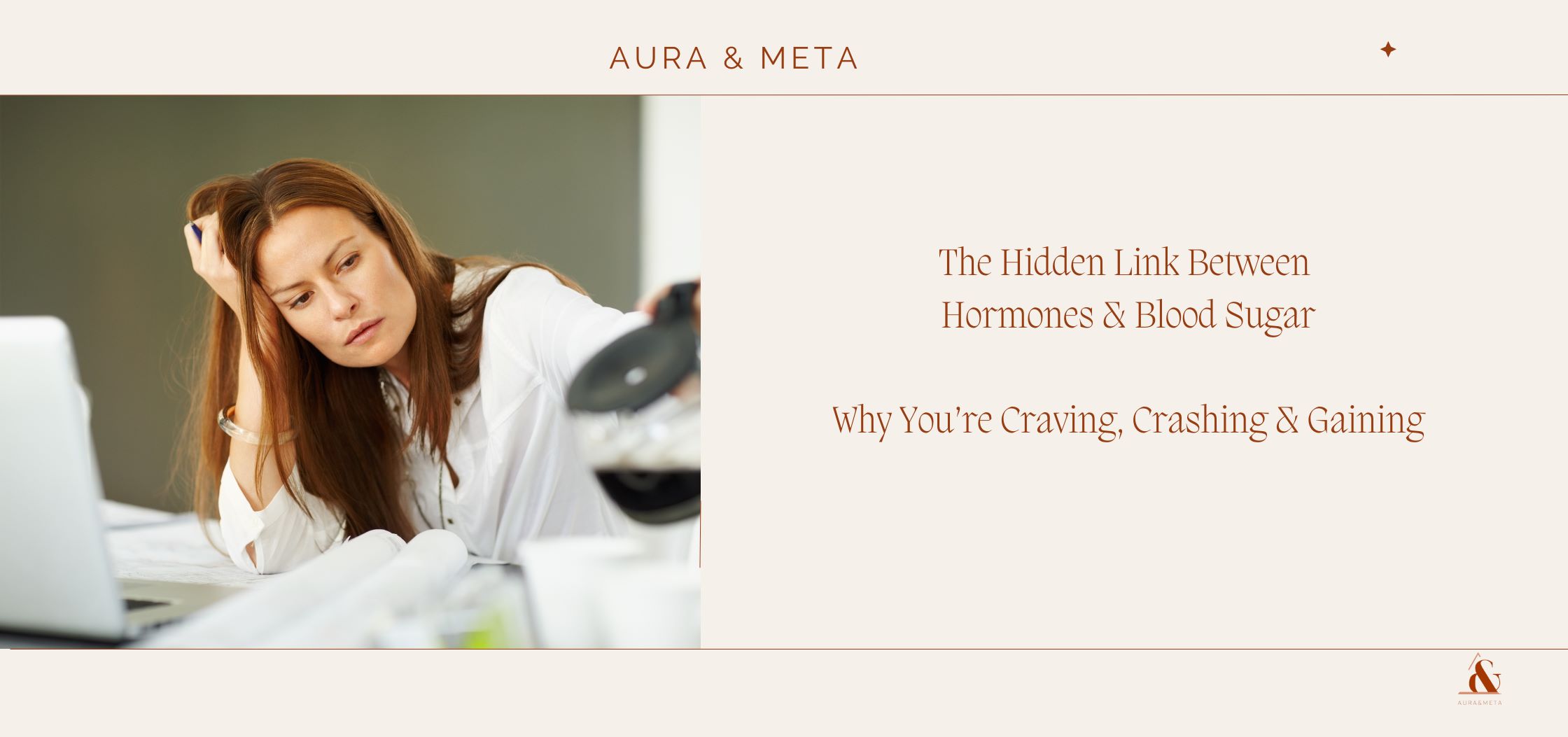Have you ever found yourself standing in front of the fridge just an hour after eating, wondering why you’re hungry again? Or perhaps you’ve been waking at precisely 3 a.m., heart racing, unable to return to sleep? Maybe your energy crashes mid-afternoon, leaving you reaching desperately for coffee or something sweet, just to make it through the rest of the day.
You’re not alone, and here’s something you might not have considered: these seemingly unrelated experiences all share a common hidden thread, your blood sugar balance.
The Subtle Dance of Blood Sugar and Hormones
Midlife often brings hormonal fluctuations that feel unpredictable and unsettling. What many women don’t realise is just how intimately tied their hormones are to their blood sugar levels. This delicate dance influences everything from mood swings to stubborn belly fat, yet it’s often overlooked.
When blood sugar spikes, insulin rises in response, trying to usher that sugar into your cells. But frequent spikes and dips, especially common in our fast-paced lives, create an exhausting rollercoaster that directly impacts your hormonal balance.
During perimenopause, the body’s insulin sensitivity can shift, often declining as estrogen fluctuates. This means the carbs you could previously tolerate might now send you into a dizzying cycle of cravings, energy crashes, and unexpected weight gain.
Understanding Your Body’s Whispers
Ask yourself if these scenarios sound familiar:
Do you experience cravings within two hours of eating? Does your energy dip sharply mid-morning or after lunch? Have you been waking at night, restless and unable to settle back into sleep?
These subtle whispers are your body’s way of communicating. They’re not mere annoyances but messages asking you to listen and adjust. Blood sugar instability can manifest as fatigue, irritability, anxiety, or a seemingly inexplicable increase in belly fat, all tied to your body’s attempt to regain stability.
The Cortisol Connection
Stress hormones, like cortisol, share an intimate relationship with insulin and blood sugar. Stress can trigger spikes in blood sugar, and in turn, unstable blood sugar can further increase stress, creating a perpetuating cycle. Many women find themselves caught in this loop, feeling overwhelmed, anxious, and frustrated as their symptoms worsen.
It’s important to remember that your body isn’t betraying you, it’s signaling to you that something deeper needs attention. By addressing blood sugar balance, you’re also nurturing your adrenal glands, hormones, and overall emotional well-being.
Bringing Balance Back
Instead of viewing these challenges as something you need to push through, what if you approached them with curiosity and compassion? Imagine your meals as gentle medicine, designed to stabilize your energy, mood, and hormones.
Including protein and fiber with every meal is a practical way to create steady energy throughout the day. Choosing balanced snacks, like nuts with a small piece of fruit or hummus with vegetables, can help smooth out energy dips.
Intermittent fasting, when approached gently and thoughtfully, can support insulin sensitivity. But extremes aren’t needed. Even simple adjustments, like leaving a 12-14 hour window overnight, can significantly improve how you feel.
Embracing Your Journey
This isn’t merely about dietary changes; it’s about creating a compassionate partnership with your body. Your perimenopausal years don’t have to be filled with exhaustion or frustration. By understanding and respecting your body’s unique signals, you can create a sense of harmony that carries you gracefully through this transition.
Remember, you’re not lazy or lacking discipline, your body is simply asking for what it needs to thrive.
Your Next Step to Balance
If you’re ready to step off the blood sugar rollercoaster and find harmony again, I invite you to start this journey with me. Let’s explore gentle, personalized strategies that support your energy, mood, and hormones in a holistic way.
Or if you’re ready to dive deeper, book your complimentary discovery call, and together, we’ll map out your personalized path to wellbeing.
You’re not alone in this. I’m here to guide you every step of the way.

